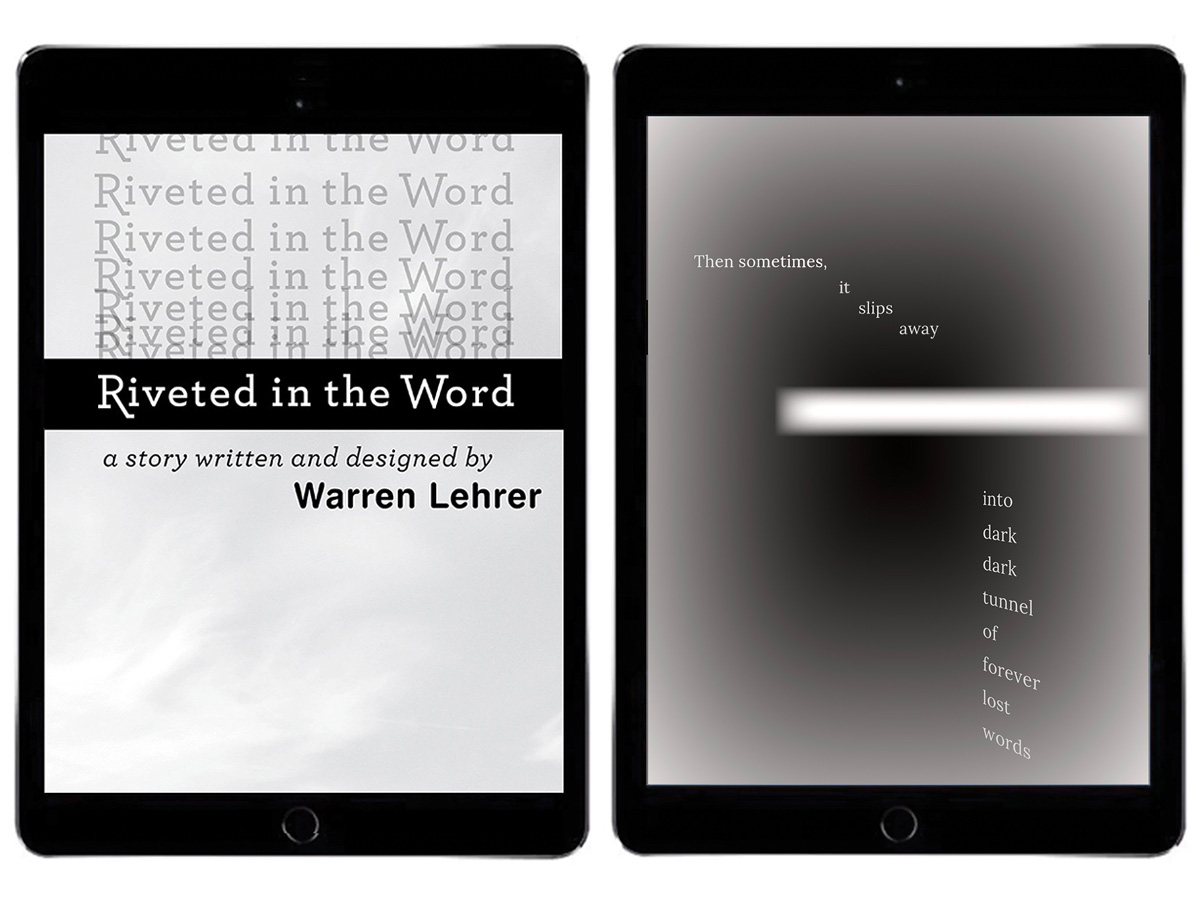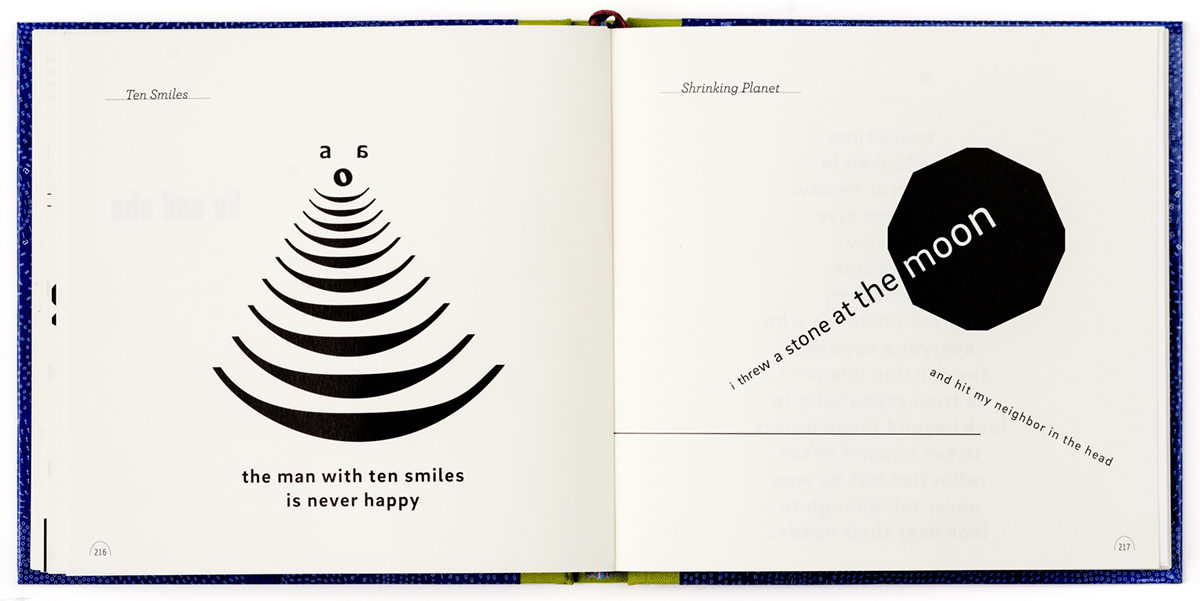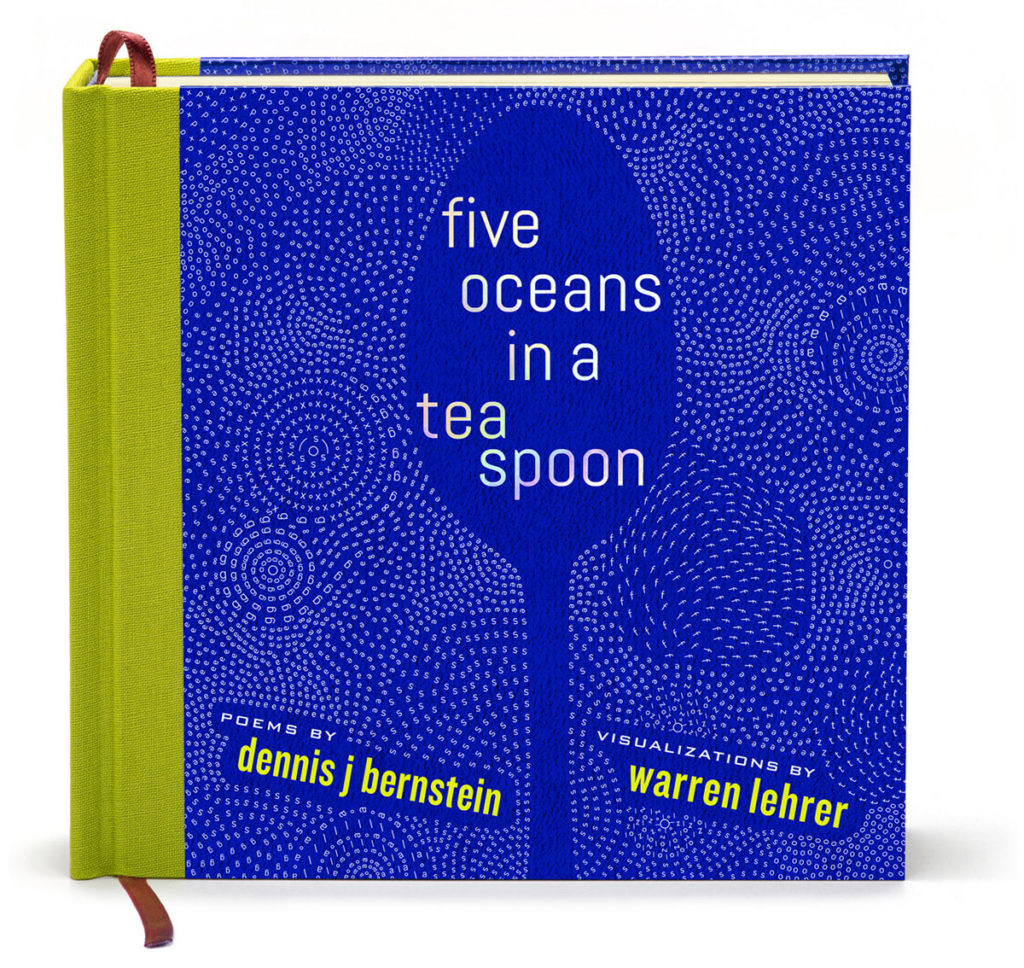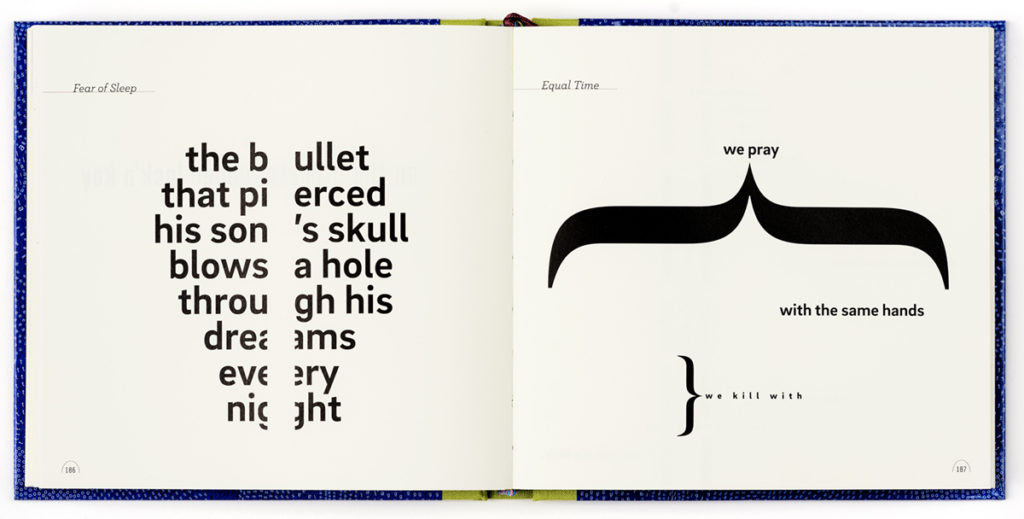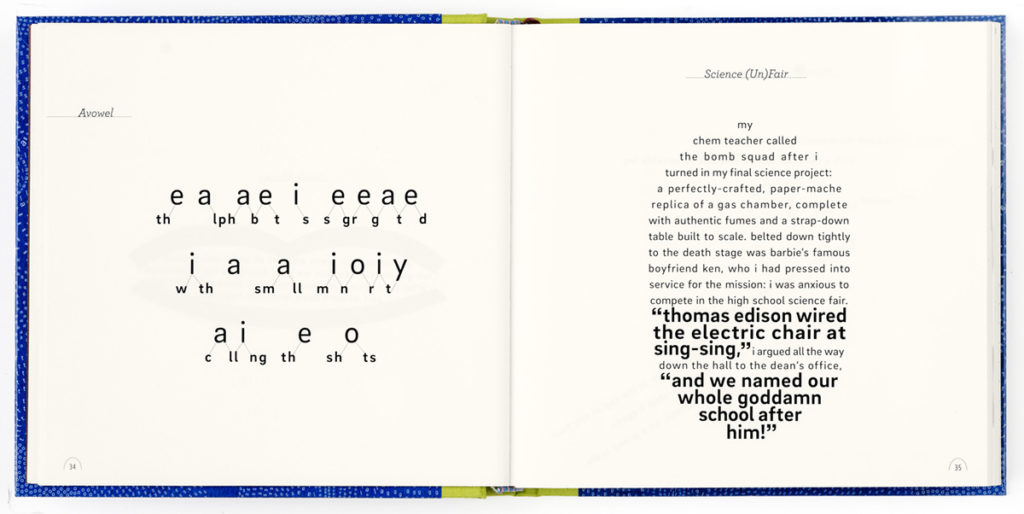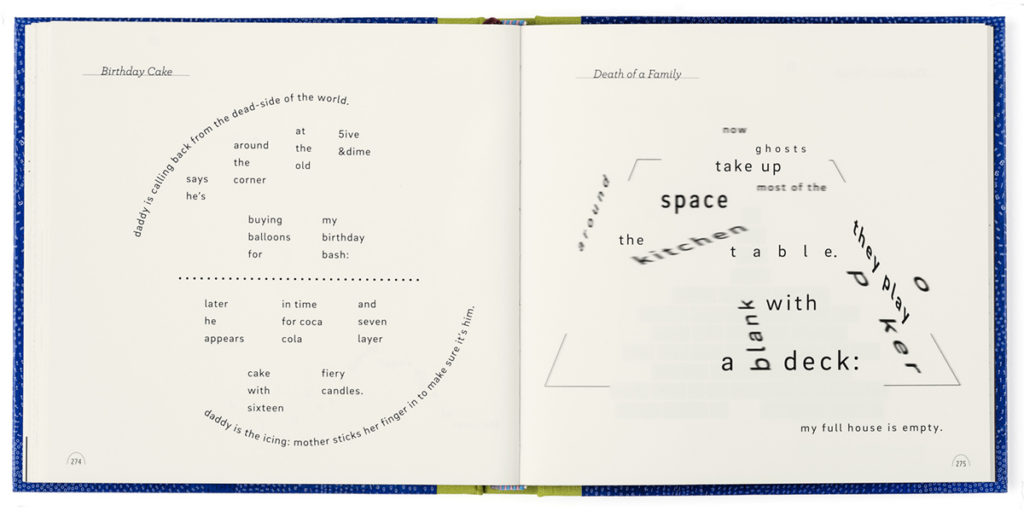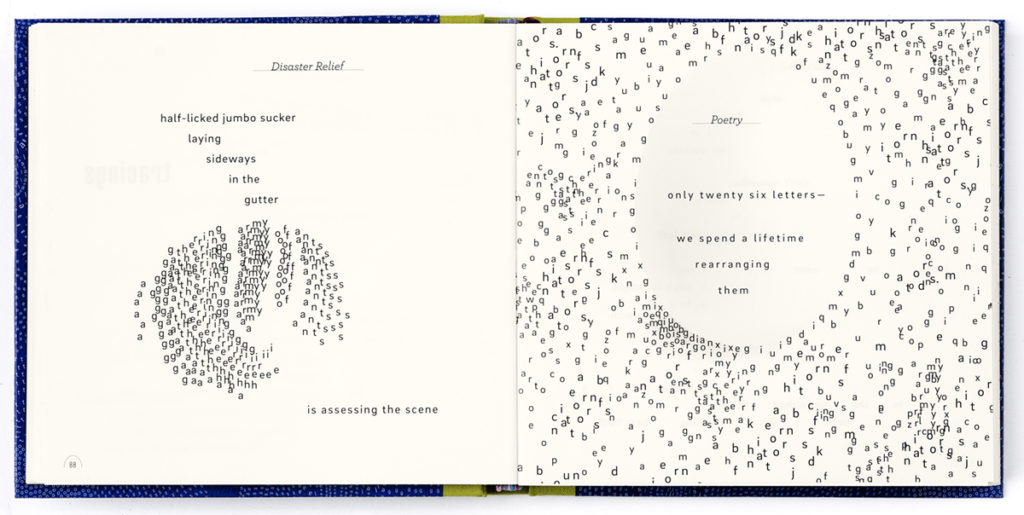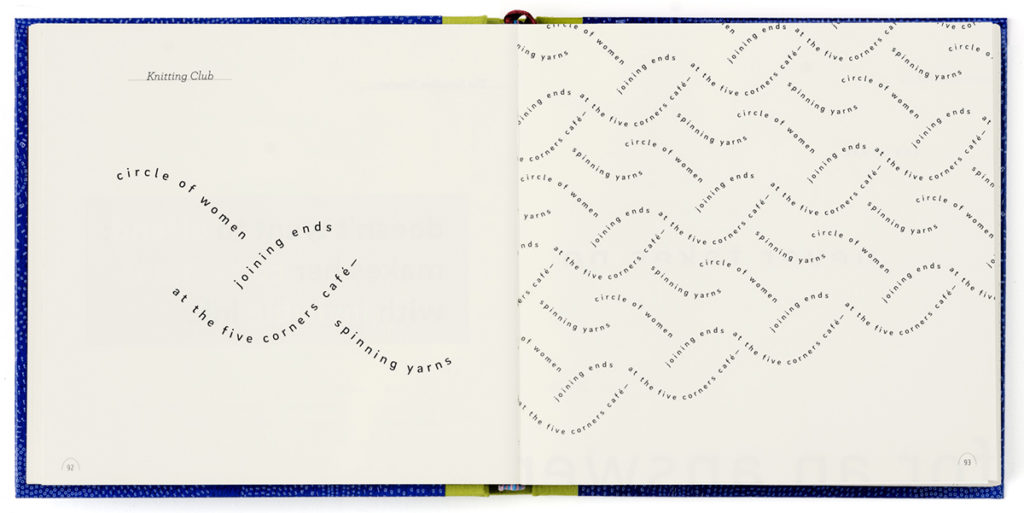Warren Lehrer
School of Visual Arts (SVA);
Purchase College
SUNY (Professor Emeritus)
Riveted in the Word is an electronic book inspired by the true story of a writer/historian’s hard-fought battle to regain language after a devastating stroke. Written and designed by author/designer Warren Lehrer, the multimodal book app uses writing, a custom interface, kinetic typography, and an original soundtrack to place the reader inside the mind of a retired American history professor as she recalls her journey with Broca’s aphasia. The interface toggles between columns of text that readers navigate at their own pace, and animated sections that evoke gaps between perceptions (thoughts, memories, desires) and the words needed to communicate.
Most of the inner monologue takes place while the fictionalized protagonist, Norah Hanson, PhD, is lying in bed thinking about her 20+ year rehabilitation, hopeful for the day ahead, which turns out to be a breakthrough day for her. The interface is often bifurcated down the middle, in a way that mirrors the two hemispheres of the brain, which get affected differently by a stroke. The reader witnesses Norah’s sense of humor, determined spirit, and seemingly fragmented-but-intelligible thoughts as they shift from present to past, and toward her upcoming public lecture, the first she’s given since the stroke.
BACKGROUND/METHODOLOGY
I first met and interviewed Willie Lee Rose, a historian of the American Reconstruction period, two decades after she suffered a massive stroke. She was 71-years-old at the time. Willie’s stroke affected the left hemisphere of her brain, which gave her the kind of aphasia that affects the use of language. Like many cases of Broca’s aphasia, she retained the memories and intelligence that she had before, but she suddenly didn’t have the language to communicate. Willie’s difficult but triumphant rehabilitation inspired me to write a fictionalized interior narrative of a scholar and stroke survivor—that takes place over the course of a few hours of one day.
The first iteration of Riveted in the Word was published in my 2013 illuminated novel, “A LIFE IN BOOKS: The Rise and Fall of Bleu Mobley,” as an excerpt of one of my author-protagonist’s 101 books. In 2018, Willie Lee Rose died, at the age of 91, and a few years after that I decided to adapt Riveted into an electronic book, and dedicate it to Willie.
For the past twenty years, I’ve been enhancing my solo and collaborative printed books (non-fiction, fiction, and poetry) with animations, short films, and interactive media. I’ve also been focusing more and more on making work that helps create greater understanding of and empathy for neurodivergent and other human conditions such as Dyslexia, Alzheimer’s disease, displacement, trauma, and loss. So, I had the idea of developing Riveted in the Word as my first fully electronic book as a way of creating an immersive experience that could help readers have more awareness of the interior experience of this little understood condition.
In 2019, I had the good fortune of meeting Artemio Morales, a web developer with a literature background and passion for multimedia books. After deciding to work together on the Riveted in the Word ebook, we brainstormed about creating an interface that would in some ways split the difference between watching a movie and reading a book. Several months later, I sent him a 1,200 page storyboard, which he began translating into code using Unity. I also brought composer/multi-instrumentalist Andrew Griffin into the project because of the phenomenal job he did creating soundtracks for the animations of my and Dennis Bernstein’s “Five Oceans in Teaspoon” project. The three of us worked on “Riveted in the Word” for five years while juggling other projects.
OUTCOMES
Riveted in the Word launched in June, 2024 as a book app made for iPads, iPhones, and Mac computers, available for sale on the Apple App store, for $4.99. We are currently adapting it to work on Android and Windows devices and online through web browsers. The book app is co-produced and co-published by my non-profit arts organization EarSay, dedicated to nurturing and portraying stories of uncelebrated individuals and communities, and Artemio’s production lab, AltSalt, dedicated to publishing and promoting innovative works of electronic literature.
So far, we’ve had two official book launches to over-capacity audiences, one at the Center for Book Arts in NYC, one in Blue Hill Maine, in conjunction with the Maine Writers and Publishers Association’s “Word Festival.” Launches included real-time projection of the app with reading/performances by actress/author and my EarSay partner Judith Sloan, and Q&A with collaborators Andrew Griffin, Artemio Morales, medical professionals, and stroke survivors.
Over the past several months, we also presented performance/readings of Riveted at Torn Page, Art New York Studios, Topaz Arts, NYU Tish, Pratt Institute, the University of Wisconsin/Madison, and as part of the Contemporary Artists’ Book Conference/NY Art Book Fair, and the Electronic Literature Organization National Conference in Orlando, Florida/online.
Riveted was a featured title of the May, 2024 Print (Magazine) Book Club, along with another book that I wrote and designed, “Jericho’s Daughter.” That hour-long conversation was hosted by Debbie Millman and Steven Heller.
Riveted was the subject of a segment on New York Public Radio with me and Dr. Laura Boylan, a neurologist at Bellevue Hospital and faculty at NYU School of Medicine.
I also discussed Riveted in an hour+ interview with Carson Grubaugh on the Living the Line video podcast which features makers of graphic novels and visual literature.
In addition to receiving positive receptions from the design and electronic literature communities, I’m most hearted by the reception Riveted is receiving from health care professionals and stroke/aphasia survivors.
The National Aphasia Association (NAA) has endorsed Riveted and is featuring it on their Recommended Reading list.
Upcoming presentations include performance/readings at two New York medical schools and I’ve been invited to be a keynote speaker at an Art & Health Symposium in Tennessee.
In the attached Evidence of Outcomes doc, I’ve enclosed press quotes and other testimonials that attest to ways Riveted in the Word is innovative and contributes to the field(s) of design, electronic literature, and narrative medicine.
This project was the 2024 Design Incubation Educators Awards winner recipient in the category of Scholarship: Creative Works.
Biography
Warren Lehrer is a designer and writer known internationally as a pioneer of visual literature and design authorship. His work is acclaimed for its marriage of writing and typography, capturing the shape of thought and speech, and reuniting oral and pictorial traditions of storytelling in books, animations, and performance. Honors include: Ladislav Sutnar Laureate, Center for Book Arts Honoree, Brendan Gill Prize, Innovative Use of Archives Award, International Book Award for Best New Fiction, three AIGA Book Awards, and fellowships and grants from the National Endowment for the Arts, New York Foundation for the Arts, Rockefeller, Ford, and Greenwall Foundations. His books are in many collections including MoMA, Getty Museum, Georges Pompidou Centre, Tate Gallery. Lehrer is a founding faculty member of the Designer As Author/Entrepreneur MFA program at the School of Visual Arts, Professor Emeritus at SUNY Purchase, and co-founder of EarSay, a non-profit arts organization in Queens, NY. https://warrenlehrer.com/
